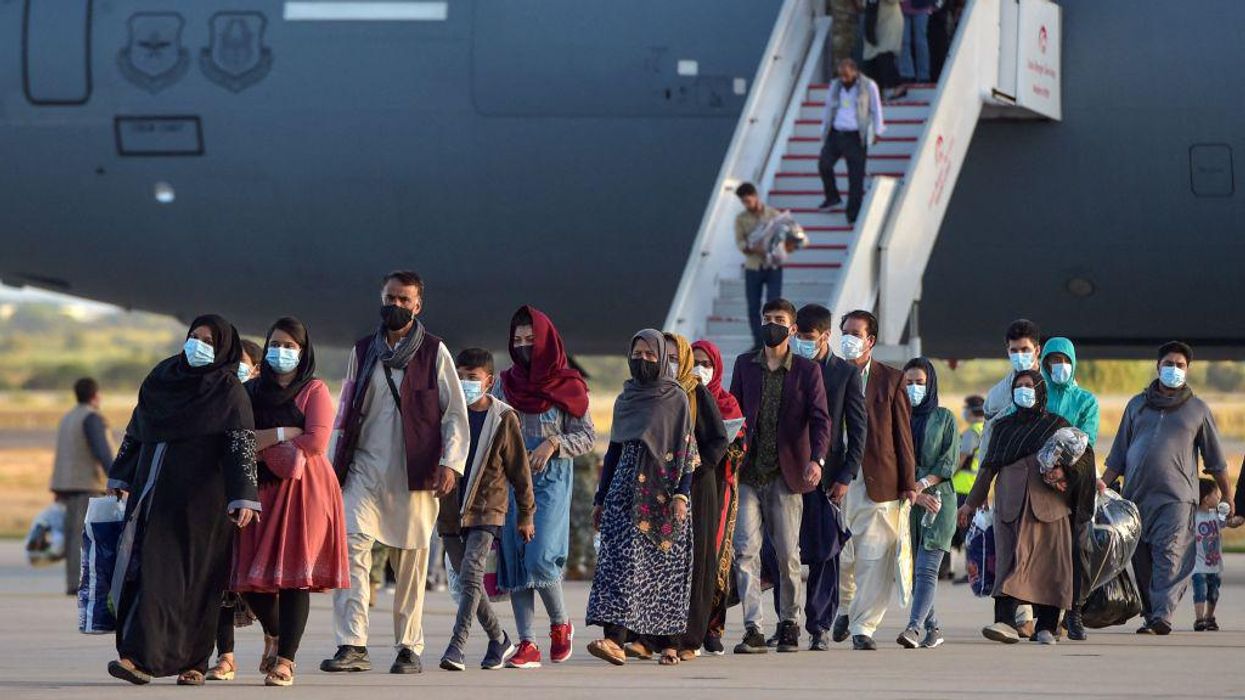
Photo by CRISTINA QUICLER/AFP via Getty Images

The city of St. Louis, Missouri, hopes to grow its population by luring Afghan refugees to settle in the city so that it can offset its 70 years of population loss.
The Associated Press reported that there is an “aggressive effort” in the city to attract large numbers of the more than 76,000 Afghans who fled their country after its capital city of Kabul was ceded to the Taliban.
Currently, the city is home to about 600 Afghan refugees, and another 750 are expected to arrive later this year.
The Associated Press reported various city and community leaders are “hopeful that over the next few years, thousands more will decide to relocate” to St. Louis and “offset seven decades of population loss.”
Reportedly, city officials see courting Afghan refugees as crucial to beginning a process of urban rejuvenation, as the arrival of Bosnian refugees spurred along a similar process in the 1990s.
In the 1990s, St. Louis was the most popular destination for Bosnians who were displaced by the war in the former Balkan nation of Yugoslavia. Of the estimated 300,000 Bosnian refugees who sought entry into the U.S., roughly 40,000 now call the greater St. Louis region their home.
The St. Louis Afghan Resettlement Initiative is backed by more than $1 million in donations and has more than 800 volunteers at its disposal. The initiative has support from the Roman Catholic Archdiocese of St. Louis, the International Institute of St. Louis, and other nonprofit groups throughout the city.
Reportedly, advocates for the refugee resettlement initiative haven’t encountered any opposition.
Jerry Schlichter, an attorney who is an organizer and major funder of the program, said that the initiative will help Afghan refugees find housing and jobs, connect newly arrived refugees with professional development resources such as classes on computer coding, and provide them with grants for business startups.
Schlichter said, “There’s a mutual need. We have been stagnant. With this one-time opportunity with Afghan refugees ending up somewhere in this country, we should take advantage of it.”
Arrey Obenson, the president and CEO of the International Institute of St. Louis, said that he is confident the new refugees will revitalize the city’s neighborhoods.
“The reality of the circumstance we face is that if we look at St. Louis city and the rate the population is declining, we have to find a way to bring people into the community to turn that around,” Obenson said.